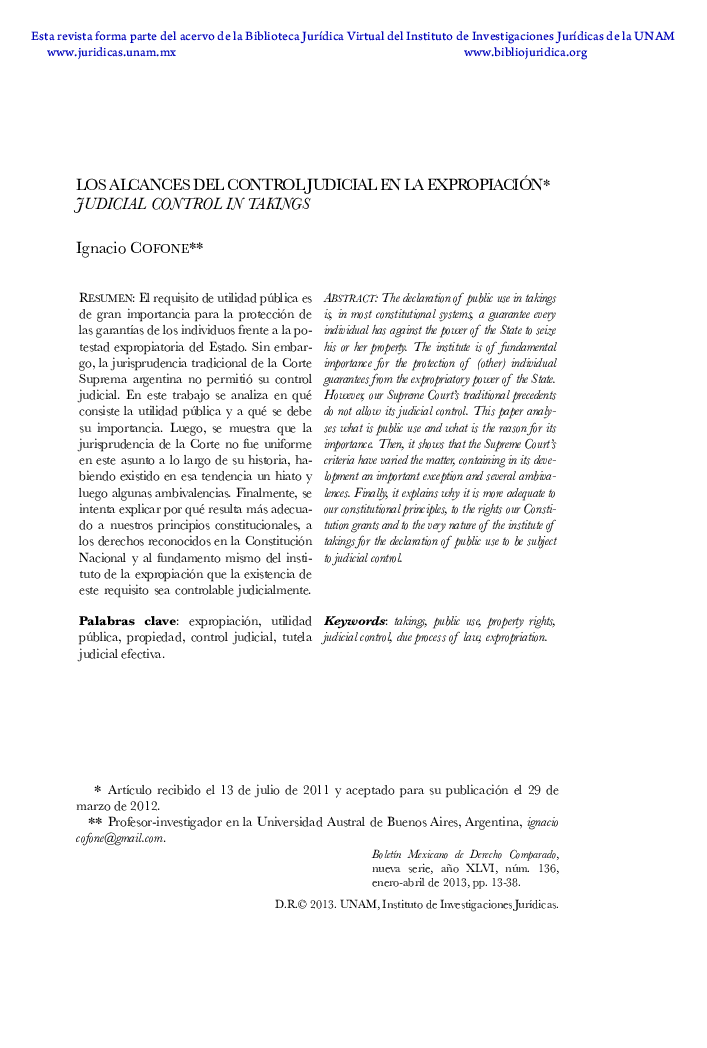| Article ID | Journal | Published Year | Pages | File Type |
|---|---|---|---|---|
| 1097298 | Boletín Mexicano de Derecho Comparado | 2013 | 26 Pages |
ResumenEl requisito de utilidad pública es de gran importancia para la protección de las garantías de los individuos frente a la potestad expropiatoria del Estado. Sin embargo, la jurisprudencia tradicional de la Corte Suprema argentina no permitió su control judicial. En este trabajo se analiza en qué consiste la utilidad pública y a qué se debe su importancia. Luego, se muestra que la jurisprudencia de la Corte no fue uniforme en este asunto a lo largo de su historia, habiendo existido en esa tendencia un hiato y luego algunas ambivalencias. Finalmente, se intenta explicar por qué resulta más adecuado a nuestros principios constitucionales, a los derechos reconocidos en la Constitución Nacional y al fundamento mismo del instituto de la expropiación que la existencia de este requisito sea controlable judicialmente.
The declaration of public use in takings is, in most constitutional systems, a guarantee every individual has against the power of the State to seize his or her property. The institute is of fundamental importance for the protection of (other) individual guarantees from the expropriatory power of the State. However, our Supreme Court’s traditional precedents do not allow its judicial control. This paper analyses what is public use and what is the reason for its importance. Then, it shows that the Supreme Court’s criteria have varied the matter, containing in its development an important exception and several ambivalences. Finally, it explains why it is more adequate to our constitutional principles, to the rights our Constitution grants and to the very nature of the institute of takings for the declaration of public use to be subject to judicial control.
